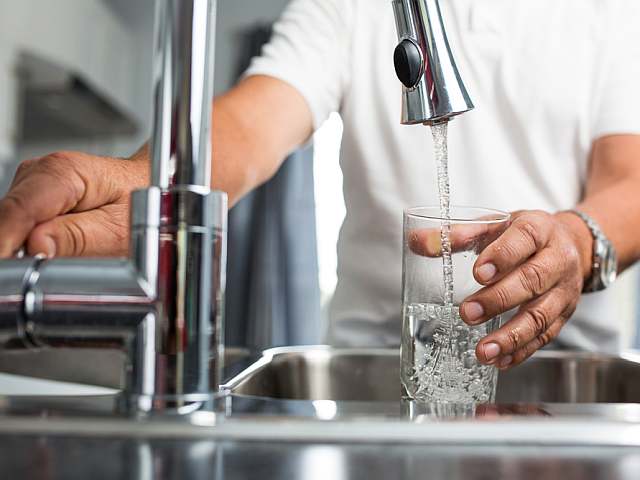Unless there is a drastic overhaul in water planning and conservation in South Africa, demand for this critical, but scarce, resource will surpass supply by 2020.

According to the WWF, 98% of the country’s water has already been allocated to users, leaving little surplus water to cater for a growing population and increasing demand.
“One way to achieve sustainable water management is to understand and manage consumption by utilities and end-users. But, as it stands, we don’t have accurate data, since we lose 37% of our water in the current urban infrastructure, and consumers pay for consumption based on estimates and averages,” says Shannon Vermaak, Utility Systems Marketing Manager.
South Africa is the 30th driest country in the world, but there is little awareness or incentive for citizens to use water sparingly. The Institute for Security Studies reports that the average South African uses 235 litres daily, compared to a global average of 173 litres. One reason could be SA’s history of low water tariffs. Another could be that consumers don’t know how much they’re using until their statement arrives.
Prepaid water metering offers a solution, giving consumers financial control and enabling municipalities to measure, manage, and bill - accurately - and in real time.
Prepaid perks for consumers
Information is key. With prepaid water meters, consumers don’t have to wait until month-end to see that it wasn’t the best idea to water the garden every day, or to find out that they have a leak. When consumers know exactly how much water they’re using and what it’s costing, they can better manage their finances and handle leaks.
Pay-as-you-go water systems - much like prepaid electricity or airtime - give lower-income earners more financial control by enabling payment in smaller, frequent increments. This prevents debt, which can compound on a post-paid arrangement.
Some prepaid systems also offer ‘lifeline water’ or ‘emergency water’. In exceptional circumstances this allows users access to water when they’ve depleted their credit.
Prepaid perks for providers
‘Providers’ in this context refers to both municipalities and third party service providers.
Now, curbing municipal water losses should be a priority, not only because there won’t be enough water to go around in two years, but also because of the financial and economic implications. SA spends R7 billion a year on water losses - money that could be used to upgrade infrastructure and build more catchment facilities.
Aside from their ability to alert municipalities to leaks, prepaid meters also drastically reduce government’s admin costs. This is because municipalities don’t need to chase bad debts or budget for legal fees on unpaid accounts. Public sector cash flow is immediately improved because municipalities are paid upfront for water.
Collecting data from prepaid meters is also more efficient than the manual collection required for post-paid meters. A radio link receiver can be fixed, vehicle-mounted, or carried by municipality personnel. Data is transmitted to the receiver as soon as it’s within signal of the meter, so meter readers don’t need to enter the property. This facilitates walk/drive-by meter reading and the capturing/navigation of routes.
Prepaid systems are also cost-effective solutions to sustainable water management in that they have a low cost of acquisition and, by curbing water usage, capital recovery is possible within months. The systems are also able to distribute water equally, based on free water quotas, water balancing and fluctuating demand.
Finally, sectional title management companies can bill more accurately with prepaid systems, instead of splitting consumption equally between units within a complex.
Weighing the pros and cons
As with any other prepaid service, if users don’t monitor their usage and credits, their water supply could be cut off. However, they can see the credit declining alongside their usage, which gives them time to buy more before it runs out.
While prepaid systems are more expensive than conventional metering, this is outweighed by the convenience of financial control, having real-time visibility into consumption via an app or user interface unit, and being able to identify a leak well in advance of it becoming a financial burden.
Municipalities that have implemented prepaid systems are seeing value from the ability to track usage and stop water flow once a limit has been reached - especially in drought-stricken areas. And since devices are tamper-proof, municipalities can curb theft and better manage service delivery in underserved areas.








